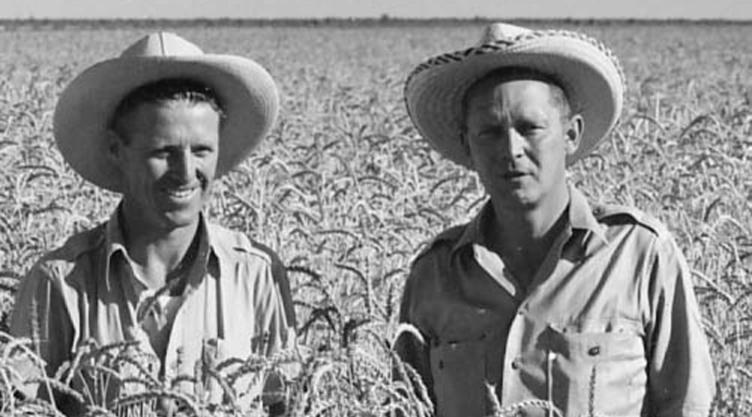After his 1937 graduation in Forestry, and with the promise of a U.S. Forest Service job, Norman and Margaret Gibson married. The job offer fell through, due to the funding problems, and the couple faced dire financial straits. Norman approached the eminent Professor of Plant Pathology Elvin C. Stakman for a paid graduate assistantship. Stakman questioned Borlaug’s motives (financial rather than intellectual), but gave him a temporary job ‘reading’ microscope slides and counting spores. He later assigned Norman a graduate assistantship under Dr. Clyde M. Christensen to study a box elder tree disease during his M.S. degree. For his Ph.D. Norman worked with Dr. Jonas J. Christensen on the flax wilt disease project. Norman had gotten lucky with advisors. He had been assigned to two of the greatest teacher/researchers in the history of Plant Pathology at Minnesota. Thus Norman never worked with wheat, and had only a single course in plant breeding.

His vibrant, positive personality made him a departmental favorite. Ever the athlete, he played on the Departmental softball team, and was volunteer head wrestling coach at the University’s Agricultural High School on the Saint Paul Campus. In 1941, at the beginning of World War II, he took a microbiology position with E.I. Du Pont de Nemours & Company. He worked on preventing microbial decay of packaging and destruction of war related materials. He had not finished his theses and wrote both, MS (1941) and PhD (1942), in the evenings while working in Delaware. Then in 1943-44 Stakman, and his former student Dr. George J. Harrar (Director of the Rockefeller Foundation’s ‘Mexican Project’), began recruiting Norman to work in Mexico. Norman resisted, but in 1944, at his wife Margaret’s urging, he accepted and left for Mexico.
Stakman and Harrar knew working conditions in Mexico were abysmal. Both men had been there and Harrar was living close to the proposed experimental area in Mexico. Stakman knew that Borlaug was the man for that position in Mexico. He said about Norman—“He will not be defeated by difficulty and he burns with missionary zeal.” Elvin Stakman’s faith and insight into Norman’s abilities and character was prescient. Norman would soon change Mexico’s food production situation and go on to bend the arc of world history.